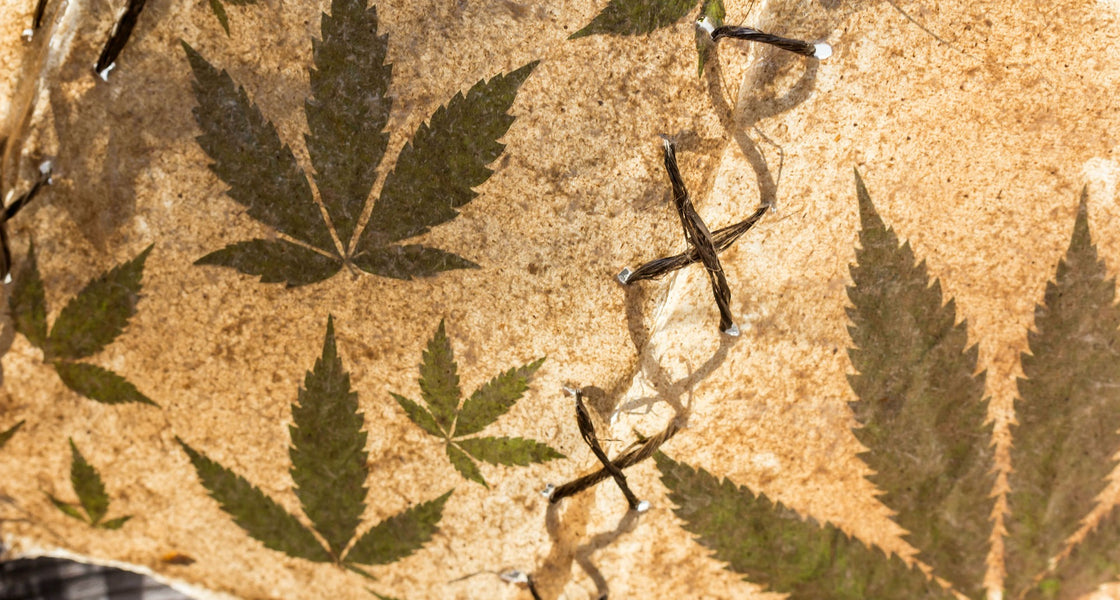With the arrival of 4/20, it's easy to dismiss cannabis as simply something that makes you eat Fritos. But cannabis has existed since quite literally the dawn of the time, making its presence and influence known in a variety of different cultures throughout history.
Today, we thought we would enrich your mind with a glimpse into just one of the many cultures in which cannabis has been incredibly spiritually influential. You can also show this article to your mom and tell her your bong is a religious artifact.
If you’re in India and notice a man wrapped in cloths, his face hidden with a large turban and even larger beard, holding a clay chillum in his hand and puffing like there’s no tomorrow, you’ve likely met a Sadhu.
Sadhus are Indian holy men who renounced their worldly life to live in celibacy, practice yoga, and search for enlightenment. But there’s one thing they’re not willing to forgo - cannabis.
These ascetics don’t consume cannabis just to get high. They use it to ascend to a higher plane of existence.
The root of this admiration is the Shiva deity, who is known as the protector, creator, transformer (not that kind of transformer), and destroyer.
Cannabis (or “bhang”) is deeply related to Shiva, dubbed the God Of Cannabis. He is believed to pick the plant as his favorite food after it calmed his mind following discourse with his family.
Many Hindu stories relate to Shiva and represent cannabis as something divine. The origin story on cannabis written in Puranas, translated “The Churning of Ocean Myth," tells a story of the sacred substance of amrita that allows one to reach immortality.
When demons discovered it, Shiva and other gods hid it at four places on earth. Some drops spilled - and there sprouted cannabis plants.
Sadhus are thought of as god’s representatives on earth and their open consumption is seen as a ritual that mimics the habits of their highest deity.
Historic Texts
The sacramental importance of cannabis in India isn’t only “Shiva’s thing."
Though some believe Cannabis was a part of Indian culture since prehistoric times, written proof points to around 2000 BCE.
The earliest known reports of the sacred status of cannabis come from Atharva Veda, estimated to be written sometimes between 2000 and 1400 BCE. It mentions cannabis as one of the “five sacred plants, which release us from anxiety."
Bhang was mentioned in a number of other historical Indian texts. Sushruta Samhita mentions hemp as a medicinal plant, recommended for catarrh, diarrhea, and phlegm.
Rig Veda mentions it in a recipe for soma, a ritual drink.
Raja Valabba tells a story of gods who sent hemp to the human race so that they can attain delight, get rid of fear, and have sexual desires.
Vedic texts also mentioned its intoxicating properties, such as the fourth book of the Vedas which refers to it under the name vijaya “victory," ananda “extreme happiness,” and siddhi “perfection."
Chikitsa-sara-sangraha mention it as a digestive and as a key for a long and happy life .
Dhanvantari Nighantu is considered to be the first text directly defining it as a narcotic.
Yogaratnamala went a step further saying it can be used to confuse your enemies and make them feel they are possessed by evil spirits.
There are a lot of references to cannabis in the Ayurvedic system of medicine. The herbal healers of India used bhang for a large number of diseases, many of which modern science has just begun to confirm, including epilepsy, chronic pain, insanity, colic, rheumatism, anorexia, bronchitis, diabetes, asthma, malaria, and cold.
Modern Day
The stance on cannabis today is quite confusing. Laws are there, but rarely enforced - and the respect for cannabis and its holy purpose is still an integral part of the culture. Not only among holy men, but among many other worshippers present at religious festivals.
To this day Sadhus and other worshippers celebrate the Kumbh Mela festivals, organized every three years at one of the spots where the amrita elixir has allegedly spilled. They smoke from their chillums and drink bhang beverages to facilitate meditation and honour Shiva.
Nepal lifts their ban for the Maha Shivaratni festival, which gathers hundreds of thousands of pilgrims near the 15 centuries old temple Pashupatinath. There you see Sadhus smoking chillums - a religious ritual that imitates the legend in which Shiva smoked cannabis when he came to the forests near the same temple.
Besides for the Maha Shivaratri day and Khumba Mela, cannabis is consumed by devotees in meetings called bhajans. It is an essential part of traditional rituals in Tantric Buddhism of the Tibeto-Himalayan region, when it’s taken to heighten awareness of the ceremony.
Indian “Dealers"
If charras, or extracted resin, is enjoyed on festivals - it was likely made by hard working villagers, who reside high in Himalaya’s mountain tops.
Walking a risky line between tradition and the law is not easy, but cannabis farming has helped countless such families escape hunger and poverty.
Cannabis Indica, a native strain used for charras, grows wild in many areas of the Himalayas, and it’s nearly impossible for authorities to cease production and trace the farmers. They started giving them even more trouble by moving their fields higher in the mountains.
Much like Sadhus, villagers consider cannabis a gift of God. They say Sadhus were the ones to help refine their technique, which involves rubbing the plants while still alive and collecting resin buds from their hands.
Their resin is illegal, but the other cannabis product - bhang - made with leaves and seeds, is still accepted.
There are even government approved bhang shops, which sell thandai, a milk-based and bhang-infused beverage.
Bhang plays a particularly important role in Hindu celebrations of Shivarati “the night of Shiva” and Holi “the festival of colors."
Western Impact
Though the bhangu drink is legal and broadly accepted, British colonialism did reverse the status of cannabis in India, starting in the mid 18th century.
The plant was uncommon in England at the time, and they believed it to cause madness, so they put a tax on cannabis in 1798 with a goal of reducing consumption “for the sake of native’s good health and sanity”. With the same goal, they admitted Indian Ganja Smokers into their “native-only” colonial asylums.
British government admitted cannabis doesn’t cause madness in their 1884 publication “Report of the Indian Hemp Drugs Commission." There they suggested that the plant is impossible to regulate and too culturally important to be banned.
However, this truce didn’t last too long. Westerners changed their minds again in the 60s in what still shapes the laws today - WHO’s Single Convention of Narcotic Drugs, that pushed towards global prohibition.
The deal was finally sealed in the Narcotic Drugs and Psychotropic Substances Act of 1985.
This act made it significantly more difficult to practice the ancient art of cultivation and celebrating gods with charras, with bhang being the only acceptable exception.
Today, Indian law still shows this kind of compromise - consuming leaves and seeds is legal throughout much of India, while resin and buds are generally forbidden.
But regardless of the western influence and the ever changing nature of laws, the Sacred Plant will always play an essential role in Indian spirituality and culture.



























































